Menu
|
For Administrative Professionals Week 2019, I'm digging up some of my favorite Admin related articles. The following was written by Carol Kleiman and was published September 7, 1992 in The Chicago Tribune. Take a memo: Executive Secretaries are Worth a King's Ransom It's not paranoia that makes a chief executive officer worry about being kidnapped.
Indeed, it's a realistic fear. Steven A. Laser, a management consultant with a doctorate in industrial and organizational psychology, says disgruntled employees may pose a threat to executive safety. Individual assessments of their behavior may be commonplace soon. Most businesses don't know very much about those who exhibit violent behavior, especially in connection with CEOs, until it's too late. But there is one fact about CEO abductors that has been overlooked: Kidnappers don't know what they're doing when they grab them. They usually go after CEOs -- typically older white men -- because these senior executives are perceived as being essential to the success of their companies. Kidnappers figure a company will be willing to pay any amount just to get its leader back. And, when it comes to ransoms, CEOs appear to be likely candidates for removal from the premises because they are paid high salaries and given multitudinous perks. Almost every kidnapper, even those who did not go to an elite Ivy League jTC graduate school of business, can figure out that CEOs are the guys with enough bucks to pay ransom on demand. But that's a superficial approach. Kidnapping and violence are heinous tragedies, and no one wants to aid kidnappers in any way. But if kidnappers knew the first thing about abduction, they wouldn't pay so much attention to CEOs. If these criminals really wanted to disrupt a business, shake things up and get big bucks in exchange for their victims, they'd snatch secretaries instead. CEOs may have private planes, chauffeur-driven limousines and enormous stock options. But in most cases, if they didn't show up at the workplace for months at a time, no one would know the difference and productivity and quality would not be affected. But if almost any one of the nation's 4 million secretaries would be so unfortunate as to be kidnapped and held for any amount of time, chaos would ensue and her absence would have a far greater impact on the bottom line. It's horrifying to contemplate anyone's being kidnapped, even a CEO, but it's hard to resist fantasizing the scenario that might evolve when a criminal abduction is masterminded by a kidnapper with smarts: CEO, looking out the window: "Help, help, I see a kidnapper." Secretary: "Don't be frightened, sir. We have a marvelous security system in place. See, I've pressed the button and four guards with machine guns already are here. I assure you, you will not miss your golf game this afternoon at 4 p.m. at your exclusive country club." CEO: "Golf? Am I playing this afternoon? I completely forgot about it. What would I do without you?" Secretary: "And you'll be on time for your wife's birthday party, too, after golf. And don't worry about the kidnapper interfering with your speech tomorrow night in Brussels. I've already written your speech, booked your private jet and alerted our overseas staff to take care of all your needs." CEO: "You're so wonderful. You think of everything. Just in case that kidnapper does get in here and things go wrong, I want you to know I've been planning to give you a 10 percent raise this year. That will bring you up to $22,000 a year -- and you deserve every penny of it." Secretary: "You made that same promise last year, sir, but you never signed the papers for payroll. It seems to me if you earn $10 million, I deserve at least $5 million. But I'll remind you again this year, because I certainly am underpaid." CEO: "I'll take that under consideration. Oh, look, the kidnapper has overpowered our security guards and is coming this way. But don't worry, I'll protect you with my life." Kidnapper: "OK, who's the CEO?" CEO: "I am, and I'll go with you quickly and quietly, even though I'll miss my golf game. Just don't harm my secretary." Kidnapper: "We don't want you, we want your secretary. We could get $2.5 million for you, but she's worth $5 million." CEO: "Kidnap my secretary and not me? What will I do without her? The business will fall apart, no one will know what to do or where anything is. I don't even have a key to the office. I'll write you a check immediately for $5 million. Just don't kidnap my secretary, I beg of you. Think of our stockholders." The kidnapper accepts the check for $5 million -- though everyone else knows the secretary is worth far more than that -- and leaves quietly, not harming anyone. CEO: "That was money well-spent. It would have been a disaster if you were kidnapped." Secretary: "I'm glad to hear you finally acknowledge my importance. And I want my raise this time for real. I deserve it." CEO: "Next year, we'll talk about it next year, I promise."
0 Comments
Administrative Professionals Day / Week 2019 (APW) is fast approaching. There has been a good deal of controversy around this "holiday" over the past few years. Personally, I'm a fan. I thrive on gratitude, so a day dedicated to being grateful for the job I pour my heart and soul into gets two thumbs up from me. If you don't agree, feel feel free to move along. That being said, here are some of the my AWP tips for managers and executives:
Please please please acknowledge your admin in some way. I can't tell you how many emails and calls I have received over the years from devastated admins who did not receive even a card or a verbal thank you. Need some ideas? Here are a few of my favorites:
I've poked around the internet and found some small admin-centric gifts to accompany the wonderful personalize gifts I know all you incredible executives all going to get for your amazing support teams :) If you have any other cute gift ideas, please post them in the comments. Thank you! Debbi If you’ve ever seen The Devil Wears Prada, you may believe that being an administrative assistant is a stepping stone to something greater. Though it can be a proving ground that opens doors to other positions, being a personal assistant to an executive or middle manager can also be a fulfilling career that is currently totally in vogue. Candidates may not need previous work experience as a receptionist or assistant, there are several crucial soft skills that make a candidate the best person for an administrative or executive assistant position.
Soft skills are those character traits and interpersonal skills. Character traits tend to be ingrained unlike occupational or hard skills, which are learned and honed over time. They’re less what we know and more the core of who we are. While experience in similar positions may get you the interview, your ability to showcase these soft skills should get you the job. Not everyone can be an administrative assistant. It takes a very specific set of skills to assist an executive or manager. The following soft skills make for a great assistant: time management, project management, strong communication, and active listening skills, as well as common sense, a flexible personality, attention to detail, natural curiosity and research ability. 1. Curiosity and Research Ability An assistant with a natural curiosity and research ability benefits the executive or manager in many ways. The perfect candidate is someone who reads a lot, gathers information and builds bridges between ideas. Executives and managers dream of the kind of assistant who reads trade news, keeps him or her up-to-date, points out networking connections that should be made, and research the boss’s new ideas with vigor. 2. Attention to Detail with a Great Sense of Urgency The great executive assistant must be meticulous in all things. However tiny, details are expected never to go without notice. Assistants must pride themselves on noticing things others do not. All those arguments about work-life balance? A great assistant is the key to helping an executive or manager achieve it. When a great assistant respects his or her boss’s need to balance work with their family or private life, he or she approaches the details of the boss’s day with urgency and accuracy. Arrive well before the boss does, stay after the boss is gone to prepare for the next day, and work their calendar with proper planning and recommendations. 3. Common Sense Despite what the name implies, common sense is rare. The great assistant is capable of filling in the gaps and demonstrating initiative. When given incomplete ideas, the assistant uses knowledge of his or her company and boss to round them out, all while keeping the executive informed and in approval along the way. 4. Active Listening Skills with Vision for the Future Listening leads to learning. While most people are “hard of listening” rather than “hard of hearing,” the great assistant processes information quickly and boldly asks questions to fill in his or her understanding. When an assistant understands the direction his or her boss is heading in and the strategy behind every move the executive or manager makes, the assistant will be able to have a greater impact on this growing partnership. Ultimately, the assistant will accurately anticipate what goes next. 5. Flexible Personality A great assistant must have the ability to interact with all people. Whether you meet in person or over the phone, the assistant must build rapport. With as many unique personalities as an assistant must deal with, he or she must be able to build rapport in a number of ways. An assistant must remain flexible and patient with all people. 6. Strong Communications Skills Communication is key. Understanding and conveying information between people is absolutely invaluable. There’s perhaps nothing in the world more valuable to customers, clients and business partners than understanding and being understood. Strong communications skills could be the difference between your legacy as “The Greatest Assistant Ever” and “What was their name again?” 7. Time Management Skills A great assistant needs to know how to prioritize and keep things on schedule because the job of assisting an executive or manager includes scheduling his or her meetings, events and other means of spending time. An executive assistant works with his or her boss to understand priorities and help manage daily scheduling so that the executive can spend more of his or her valuable time on long-term goal planning and setting. 8. Project Management Skills As much as an assistant’s ability to manage his or her time and the boss’s daily operations so that the boss has time for big-picture thinking, it’s incredibly important for an assistant to help bring the boss’s big picture thinking to life. That means being able to help manage the projects the executive or manager is working on. Big pictures are made from many little ones. With each project, there are many moving parts and you’ll be invaluable to your boss if you can help manage these moving parts. That may mean managing the deliverables assigned to all project team members or just making sure that the boss is working on the right project at the right time. It also means being able to pick up the threads of projects that have been tabled earlier but are now the boss’s focus. A great assistant is one who can make his or her boss’s job easier by tackling things like comparing expenses on financial statements, analyzing client trends or even simply highlighting a budget. These things make a huge difference in growing the partnership between an executive and an administrative assistant. While the job title and description of an assistant may seem straight-forward, it can be less so in practice. An assistant’s job requires the delicate use of dozens of desirable skills that people mostly notice when there’s a distinct absence of them. If you’ve got at least some of these skills, you’ve got a shot at being a great assistant. This past weekend I read an article on Broadway legend Barbara Cook’s passing. As a Broadway fan and someone who often proclaims “music is my drug of choice,” this article touched me on many levels, but one sentence made me suck in my breath. "For some of Ms. Cook’s friends, lyrics simply came easier than words as they sat in her bedroom alongside her son, her longtime manager, and her assistant of nearly three decades."
HER ASSISTANT OF NEARLY THREE DECADES This career I have chosen is unique. While it is important to be professional, it is also a very personal job. While I don't go to work to make friends, when done right the EA / Executive partnership can be like family. And just like in families, you don't need to like each other every single second of every single day, but there must be trust and respect, on both sides. I think that is the part admins often forget. Our bosses need to trust us for the partnership to be a success, but we also need to trust them if we are going to give all that is required. Respect should be mutual. I've had some bad bosses, some good bosses, some great bosses, but only a couple of true corporate partnerships. The reason those partnerships worked so well is the trust and respect flowed both ways. In those roles, we definitely always had each other's backs. They knew if they tasked me with something, it would get done. I knew that if I needed them to help me move something along, they would. I am currently job seeking and have been advised by a couple of recruiters to remove two positions which only lasted six-month from my resume, but I opted to leave them. This career is unique. It is a corporate marriage of sorts, only you are expected to get married after one or two dates (interviews). It doesn't always work. And it does not take long after you start working as an Assistant to figure out an executive’s true character. I ultimately decided not to remove those positions because when asked the reasons for leaving it shows MY character. This is a unique career. It is both professional and personal. Your standard rules do not always apply. But when you find the right executive, it is wonderful, productive, challenging and fulfilling. When asked by recruiters what I want in my next position, only those who truly understand my career understand my answer. I am looking for another corporate partnership like I had with my best executives. I'm looking for the Bogie Executive to my Bacall Assistant. This is a unique career. I’ve recently returned from Rome where I attended the Vonlanthen Global EA Summit. Going through my notes from the conference, one thing in particular sticks out.
Know your company’s elevator pitch, as well as your own This is something I’ve been thinking about a lot. I recently attended an EA event that a co-worker also attended. I heard one of the other attendees ask them what our company does. Their reply was, “a little of everything.” I wanted to die. I’ve fought long and hard to get company buy-in for these professional development activities. Part of that battle was proving it beneficial to the company as well as myself. “A little of everything” does nothing to sell my company. It does not give any possibility of partnership. It shows no pride in the company. Please remember every single person you meet is an opportunity. While it is important to promote yourself, it is equally important to promote your company. This is especially true if the company is footing the bill for you to attend a conference or event. Every employee is a brand ambassador. Engaged employees build strong brands. By simply saying, “a little of everything” you are not demonstrating engagement. Many successful companies are so committed to the employee brand ambassador concept they have training or guidelines on what to share on social media. Some even have incentives for sharing information the company wants to get out. All employees are salespeople. I’m an Executive Assistant, but I’ve brought business into many of the companies I’ve worked for, from hospitality, to financial, to marketing, by SELLING the business to everyone I meet. If you really want to get the attention of the Executive Team, have a large piece of potential business walk in the door and drop your name as the reason they are there. If asked the same question, my response would be, “Jacobs is one of the largest and most diverse providers of technical, professional and construction services, including all aspects of architecture, engineering and construction, operations and maintenance, as well as scientific and specialty consulting. Recently named to the Fortune 500 list for the 17th consecutive year, we are a global firm with over 50,000 employees in over 200 locations, serving a broad range of companies and organizations. I currently support executives in our Building & Infrastructure business” Do you know your company’s elevator pitch? If not, I encourage you to do some research and rehearse what you will say the next time you are asked, “What does your company do?” CREATING A NEW DIALOGUE; An Interview on Essential Workplace Values: Curiosity, Passion, Optimism with Erika Andersen, Author & Founder/Partner, Proteus International The following interview was published by C-Suite Executive Support Professionals in their September 2016 newsletter and is shared here with their permission. CSESP: How do you believe the Executive Assistant role will evolve in the future? Andersen: I think executives, CEOs especially, will need EAs who can partner with them and who will be intrinsic members of their teams. The true executive level EA will need to become increasingly comfortable in an online and social media‐based world; increasingly comfortable managing a variety of internal and external resources on behalf of his or her boss; increasingly comfortable with a high degree of change on a variety of levels. At the same time, the traditional function of the EA – doing everything possible to make his or her boss’ work life more efficient and trouble‐free and to allow him or her to focus as much energy as possible on building a team and a business – will be, if anything, more important. CSESP: What are the essential requirements for success in the workplace? Andersen: Curiosity, resilience, flexibility, solution‐focus, a passion for excellence, and optimism. I think these are essential in any responsible position, but are especially important for an EA. Having a solution‐focus is so important these days. It’s not enough to simply say “I tried to do what you asked and it didn’t work.” A great EA will say,”Hmmm....that didn’t work; what else can I do to achieve the goal?” Otherwise, your boss will have to put his or her attention on how to solve the problems you run into – and that’s not the best use of his or her time. A passion for excellence means you’re always looking for ways to make things better: simpler, faster, higher quality, less expensive. Employees who get personal satisfaction from improving the way work gets done are truly valuable. Being curious means you’ll want to keep learning and that you’ll not fall prey to limiting assumptions. Being resilient allows you to bounce back from obstacles, challenges and change quickly, without getting caught in a negative loop of emotion or action. Flexibility is critical: most executive’s lives and businesses are in a constant state of change these days, and if the EA holds rigidly to “the way we’ve always done it,” he or she is going to be an impediment rather than an enabler of great results. Finally, being optimistic provides a daily emotional support system not only for your boss, but for everyone in your office – and you as well! I’m not talking about being a Pollyanna, or pretending difficulties and obstacles don’t exist. True optimism means having a core belief that problems are solvable, that most people are well‐intentioned, and that goals can be achieved. Research shows that optimists tend to live longer and are healthier, as well! CSESP: What is the single most important advice you would give to your executive assistant? Andersen: Communicate fully and honestly with me, and when you come to me with a difficulty, bring potential solutions. I can’t read your mind and I’m focused primarily on doing my job as well as I can; if you have an issue with me or another person, or with something that’s happening at work, let me know and engage me in working it out with you. My biggest pet peeve (and I suspect this is true of many CEOs) is to find out weeks or months after the fact that my assistant has been upset about something and hasn’t come to me about it. AND when you do come to me – be flexible! If only one solution is acceptable to you, and it’s not feasible or acceptable to me or others...then we’re stuck. CSESP: What new learning is required for executive assistants to keep up in a global work environment? Andersen: Being truly comfortable in this online world is key. For instance, if your boss needs to set up a webinar with three colleagues in India, six in Israel and one in Portugal, will you know how to do that? If your boss wants you to keep track of the people opting‐in to her new marketing e‐newsletter, will you be able to recommend the best way to go about that (or find a resource that can)? It’s also becoming more and more important to know something about the cultural expectations of the countries where your company and your boss do business. If your boss regularly travels to China, for instance, do you know how Chinese executives expect to be treated? How basic travel and meeting protocols are different from or similar to those in the US? CSESP: Please indicate three subtle distinctions that define the extraordinary executive assistant. Andersen: The extraordinary assistant considers herself a partner in her boss’ success, and in the company’s success. She makes it her business to understand what that success looks like ‐‐ the vision for the company’s success, and how her boss can best support that success — and considers that in doing her job every day. The extraordinary EA finds the “sweet spot,” the best balance of respect and confidence; that is, he treats his boss with courtesy and with an understanding that his job is to make his boss’ job easier, but at the same time, is willing to disagree when he thinks the boss is moving in a direction that may not be best for him or her or for the company. That same balance of respect and confidence needs to be there when dealing with clients, other executives and colleagues. And finally, the extraordinary executive assistant has a positive impact on every person she comes in contact with: they say, when speaking of her to others, “I love dealing with ___. She makes everything work better and does it with grace and ease.” About C‐Suite Executive Support Professionals (C‐SESP)
The role of the Executive Assistant has evolved dramatically over the last twenty years or so. Most C‐suite assistants would agree that their role is not solely supportive in nature; rather, they are predominantly partners to the executives with whom they work. Because they are close to all areas in which their executive is involved, they understand the full‐picture needs of both the executive and the company – oftentimes better than almost any other position in the organization. C‐suite assistants put the pieces together – orchestrating the executive’s professional (and oftentimes personal) life, often on a 24/7 basis. In forming C‐SESP, we hope to inform and educate the business world about the true nature of this profession. We also aim to develop and educate Executive Assistants, to help them reach the level of acumen they need to be as effective a partner as possible. I am a shy introvert. No one believes me when I tell them that fact, but it is true. 10 years ago, the thought of going to a networking event where I didn’t know anyone and had to make small talk would give my hives. In 2016, I began working with a woman who was a master-networker and I learned there is great value in learning this skill, and it is a skill. For the next few years I read hundreds of books and articles on networking, took webinars and I studied my co-worker for tips and tricks to overcome my owning phobia. Today, while I make no claims to be an expert networker (I still get butterflies in my stomach before events) I want to encourage you to develop your own skills by sharing with you some of the good things that happened once I embraced networking.
There are numerous resources on how to improve networking skills. Some of my favorites are: - The Fine Art of Small Talk by Debra Fine - How to Win Friends and Influence People by Dale Carnegie - Never Eat Alone by Keith Ferrazzi - How to Work a Room by Susan Roane - Your Network is Your Net Worth by Porter Gale The three pieces of advice which helped me most were:
If I can network, anyone can do it. I encourage my fellow introverts to take a few giant steps outside your comfort zone and see what great things might start happening for you. I am excited and thrilled to announce I will be one of the speakers at Executive Secretary LIVE in London!!!!! Executive Secretary LIVE is the world's leading international event for senior and aspiring Administrative Professionals & Executive Assistants! If you missed my RECAP from earlier this year, take a moment to read about this amazing conference! The other speakers for the London event will be announced all this week! To create this half-day interactive Masterclass, I've teamed up with two of my favorite ladies, Susan Leahy & Anita Maginniss. We've designed the session to empower admins to Take Control. Embrace Influence. We hope to see you there!!!! Take Control. Embrace Influence. Co-Facilitated By: Debbi Shaffer, Anita Maginniss, Susan Leahy Administrative Professionals are crucial to the success of both the executives they support and their companies. Many admins, however, feel undervalued, disempowered and just plain tired. This ½ day interactive presentation has been designed to Empower YOU to lead from behind. In this session, we will help you to embrace your sphere of influence by identifying your strengths and weaknesses, understanding the power of collaboration, and mastering your mindset. You are important! The work you do is important! This session will re-invigorate, re-inspire and re-empower the leader that is YOU! You already know about me, so let me tell you a little about the fabulous women I'll be presenting with:
Anita Maginniss, CAP-OM is the founder of Admin Angle, a corporate network that shares articles, education options and encourages admins to develop their internal and external networks. Anita was profiled in the July 2015 issue of Executive Secretary Magazine. Anita has over 20 years of experience as an administrative professional and in 2012, followed her talents and passions to the role of corporate event planner. Anita believes that we should all strive daily to bring our strengths to bear in our lives. She wants each of you to always look for the opportunity to make the difference between ordinary and extraordinary. Susan Leahy MA CSP is a loving, powerful committed woman. She is a certified speaking professional as well as the co-founder of Group to TEAM Leadership Solutions, a training & consulting organization that supports clients to build a “Culture of TEAM” by empowering the individual. Susan is also the creator of Roberts Rules Made Simple. Great TEAMs run great meetings and Susan’s webinars and online training products are used by thousands of boards across the US & Canada to run more effective meetings. Susan’s has also launched “The Confident Woman Program” a global movement that connects women to their confidence. Stronger Women: Better World. Six years ago I worked at a law firm. My boss gave me some vague details on a conference they wanted to attend. It was in Boston for IT Administrators. While researching it, I stumbled upon information on the International Association of Administrative Professional (IAAP) Education Forum and Annual Meeting (EFAM). At that point I had been an Executive Assistant for 14 year and had no idea there were conferences & associations specifically for my job. I spent the next 12 hours building a case for why I should attend. Turns out I didn’t need to put so much effort into it. The conversation went something like this.
“I found a conference for Executive Assistants. It is next month in Boston.” “Okay” I’ve been very blessed to work with people who understand the importance of developing employees. I joined IAAP and registered for EFAM. One month later I was in Boston. Unfortunately, my first impression was not fabulous. The Chapter I joined was undergoing some growing pains. There was no online presence and no one responded to my emails. I arrived in Boston knowing no one and next to nothing about the association or what to expect at the conference. Once there, it seemed like the other 1,500 attendees all knew each other and no one gave me a second glance. By the end of day one I was ready to pack it in and spend the week working from our Boston office instead of attending the conference. Then my guardian angel, Judith Yannarelli, swooped in. Judy spied me standing on the outskirts of the room, probably looking extremely uncomfortable, and descended. She introduced herself, quickly found out my story, and took on the mission of introducing me to EVERYONE!! That week I increased my professional network exponentially, learned stuff that dazzled my team when I returned to the office, and changed the trajectory of my career. Six years later, I’m excited to be presenting on two topics at IAAP Summit (formerly EFAM) in Florida. So why am I blogging about this? Because if Judy hadn’t noticed me looking uncomfortable and on the verge of giving up, my life could be very different now. If you are attending Summit for the first time, I challenge you to be braver than I was. Walk right up and introduce yourself. This is a very friendly and welcoming collection of individuals. If you don't feel you can be that brave, find me and I'll introduce you to some people. If you are a repeat attendee, please be on the lookout for first-timer ribbons on the badges or for those on the outskirts of the room. Make it a point to be inclusive. You have no idea what a huge difference it can make. See you in Florida!!! Recently, I posted a blog without following my normal procedure of sitting on it for 24 hours and re-reading what I’ve wrote, or sending it to one of my friends to proofread. Because I skipped these steps, I made a faux pas which made it seem as if I don’t value the role of receptionist, or don’t view receptionists as valued members of the admin profession. Nothing could be further from the truth. This got me thinking about one of the best receptionists I’ve ever had the honor of working alongside. Thoughts beget thoughts, which led me to today’s blog topic on the difference between having a Rolodex and having a network.
When I worked for Former Secretary of Defense, William Cohen, at his consulting firm, Carol was the receptionist. I was in awe of Carol. She seemed to be a magician who could make pretty much anything happen. When push came to shove and Secretary Cohen really needed a miracle, it was often Carol, not one of the EAs, he called upon. I used to joke with Carol that I would give anything to have her Rolodex. What I didn’t realize at the time is that her Rolodex wouldn’t have been much use to me. Why? Because Carol had spent years cultivating relationships with the individuals in that Rolodex, not just a name, email address and phone number. She nurtured and grew a network that would bend over backward to help her make miracles happen. She sent birthday cards, flowers for anniversaries, emails acknowledging milestones, and hundreds of other small touches to develop relationships instead of acquaintances. I have a plaque on my wall at home that reads, “I’m only as strong as the cocktails I drink, the hairspray I use, and the girlfriends I have.” I think the sentiment applies to my work life as well … that I’m only as good as my network. So I took a page out of Carol’s book and consciously work on building relationships. One of my tools to cultivate relationships is making notes while they are fresh in my memory. A couple of small examples are:
People are pretty good at knowing when you are trying to get to know them just to get something from them, so remember to be authentic and genuine when building your network. Don’t connect with someone just to get something from them. Don’t have one-sided relationships. If someone has done something for you, when the opportunity to do something for them arises, don’t pass it up. On the flip side of that, if you have helped someone out multiple times, but they have neglected to help you when they could easily have done so, you may want to say no, if assisting them will create a burden on you. While we should not do favors to get favors, we should also understand the power of “not right now”. Make your network a priority by touching base with your contacts before you need something. If you only reach out when you need help, your connection will feel the one-sidedness of the relationship and might not be there for you one day. Maintaining a beneficial and active network takes thought, time, and creativity. But if you put in the work, it will pay off. |
AuthorThe Audacious Admin is Debbi L. Shaffer, an outgoing, resourceful and highly motivated executive assistant with 20 years of experience specializing in C-Suite Executive Support. Archives
April 2019
|
|
Proudly powered by Weebly
|

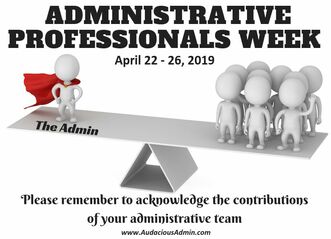



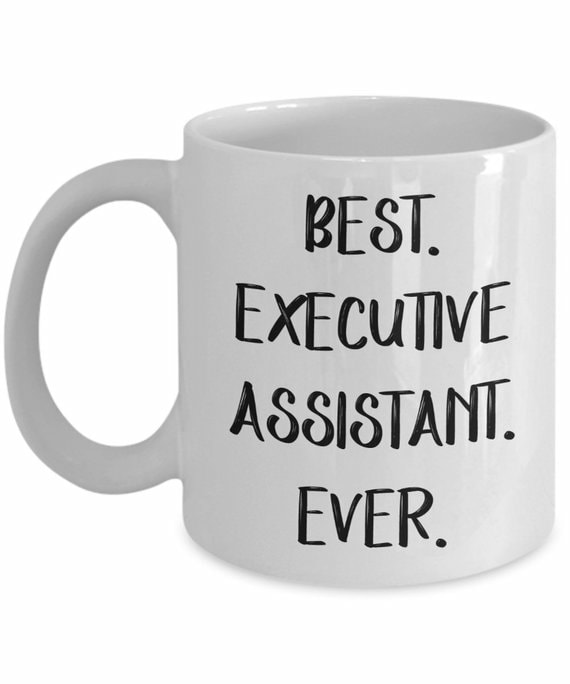
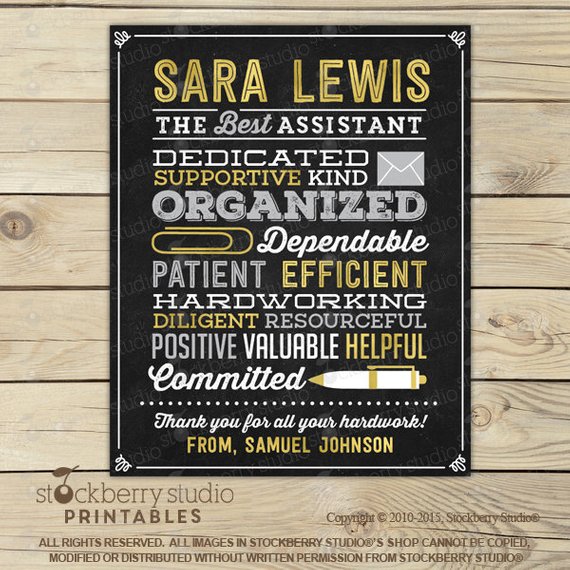

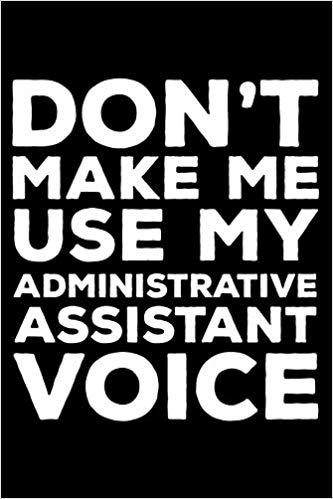
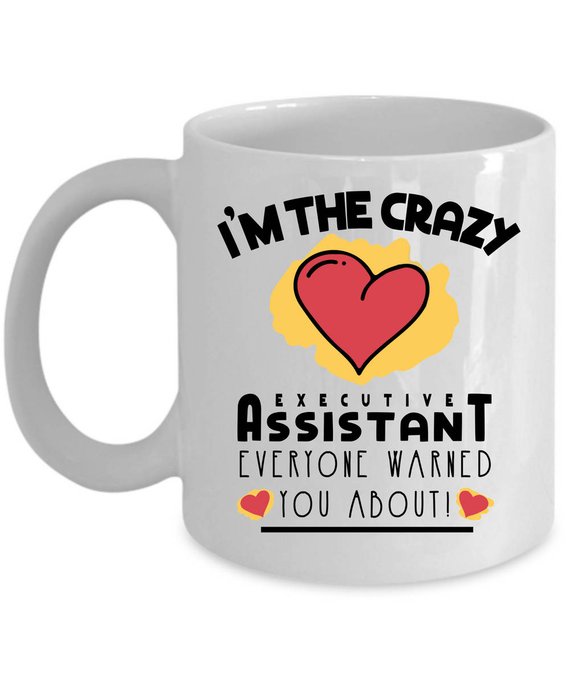
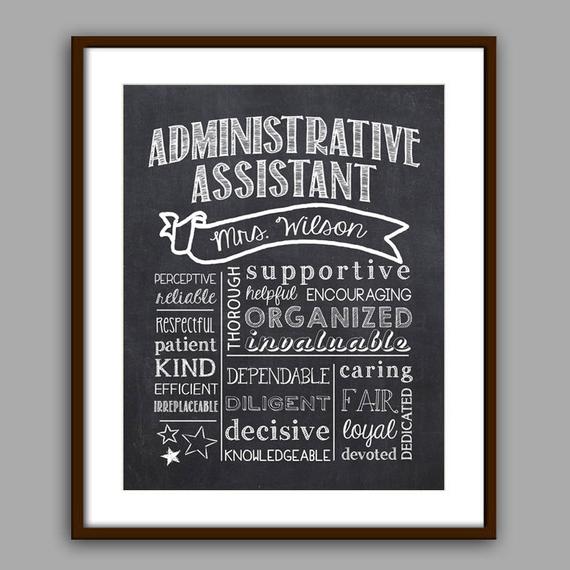
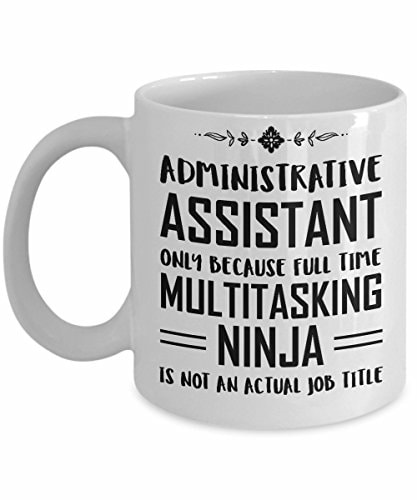




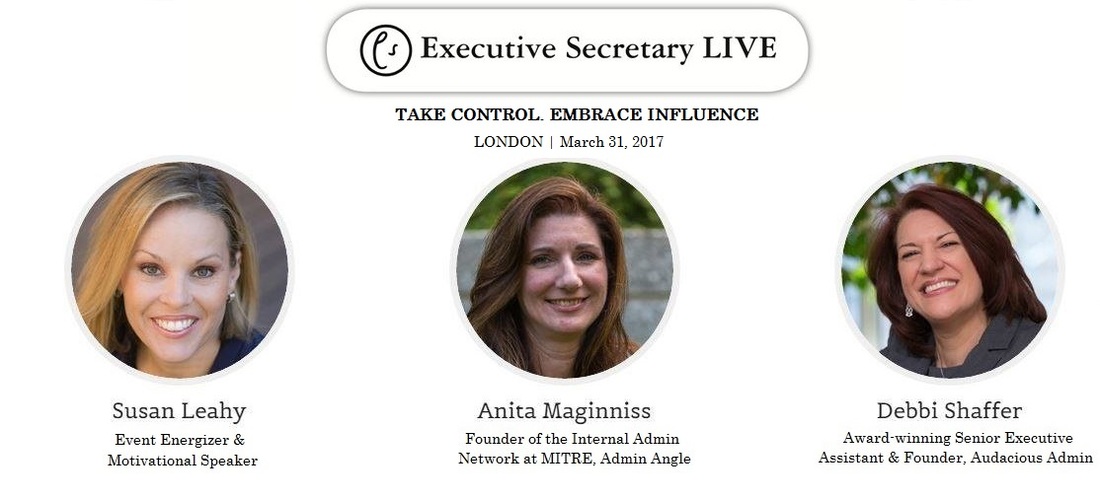
 RSS Feed
RSS Feed